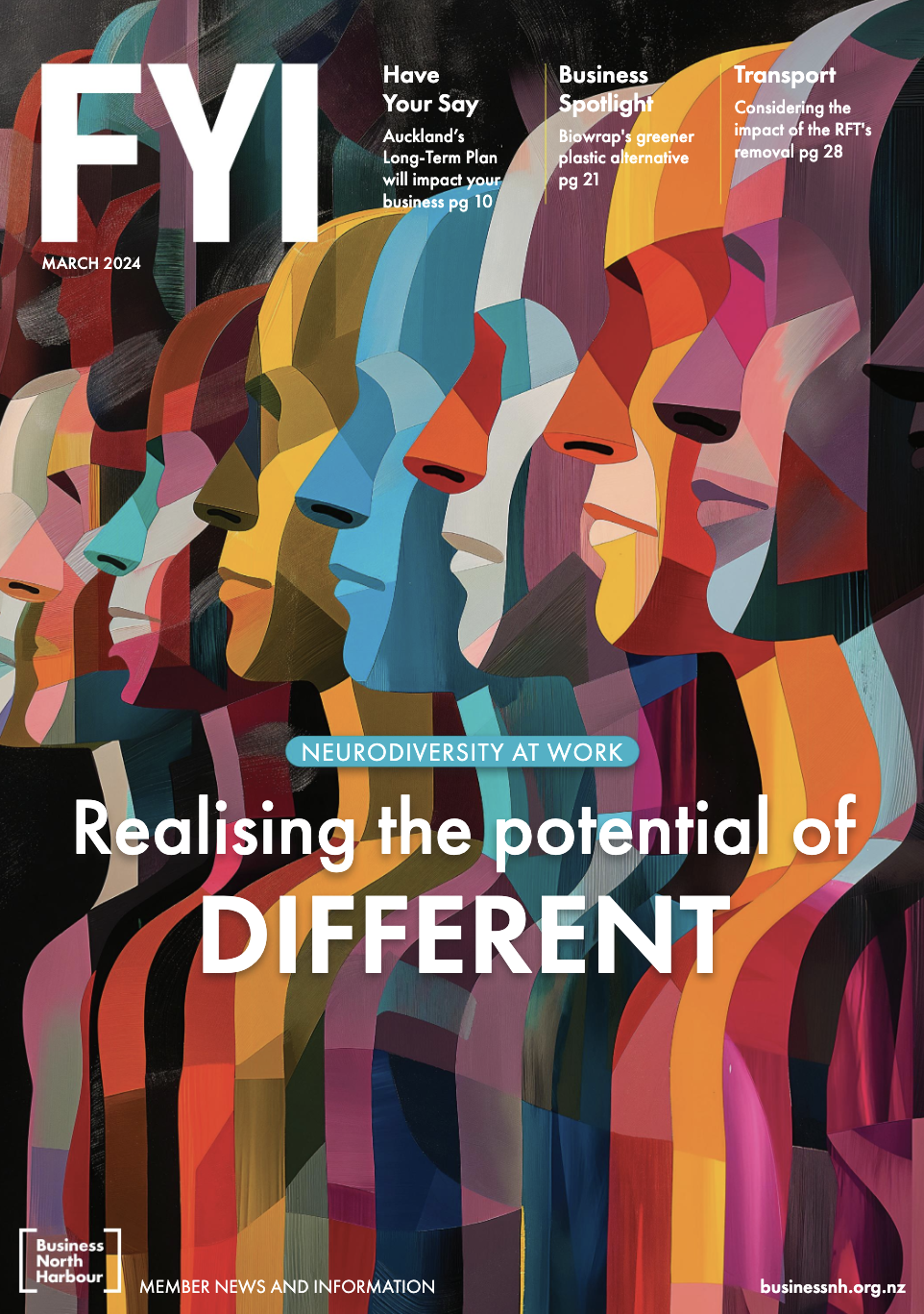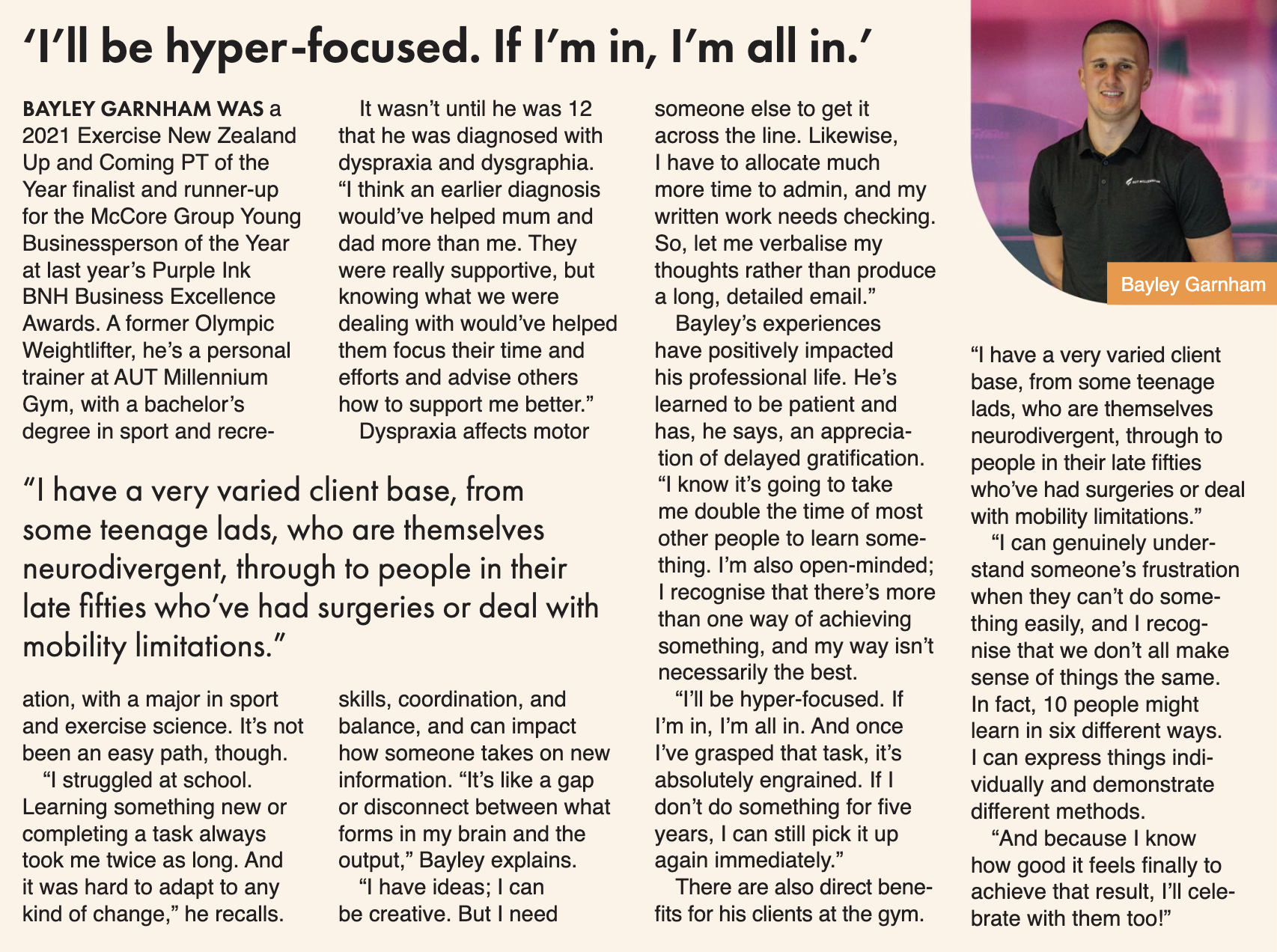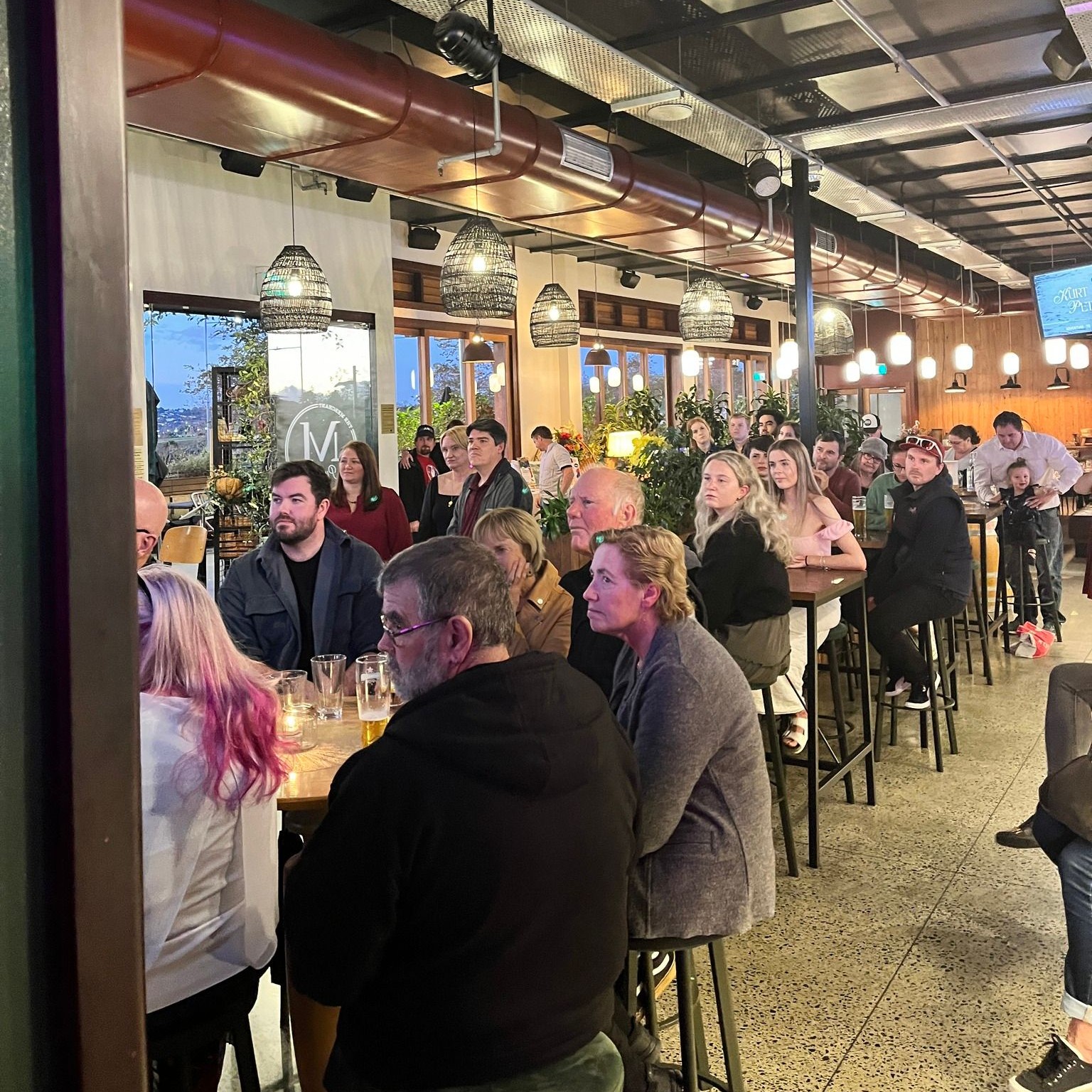‘I’ll be hyper-focused. If I’m in, I’m all in.’
BAYLEY GARNHAM WAS a 2021 Exercise New Zealand Up and Coming PT of the Year finalist and runner-up for the McCore Group Young Businessperson of the Year at last year’s Purple Ink BNH Business Excellence Awards. A former Olympic Weightlifter, he’s a personal trainer at AUT Millennium Gym, with a bachelor’s degree in sport and recreation, with a major in sport and exercise science. It’s not been an easy path, though.
“I struggled at school. Learning something new or completing a task always took me twice as long. And it was hard to adapt to any kind of change,” he recalls.
It wasn’t until he was 12 that he was diagnosed with dyspraxia and dysgraphia. “I think an earlier diagnosis would’ve helped mum and dad more than me. They were really supportive, but knowing what we were dealing with would’ve helped them focus their time and efforts and advise others how to support me better.”
Dyspraxia affects motor skills, coordination, and balance, and can impact how someone takes on new information. “It’s like a gap or disconnect between what forms in my brain and the output,” Bayley explains.
“I have ideas; I can be creative. But I need someone else to get it across the line. Likewise, I have to allocate much more time to admin, and my written work needs checking. So, let me verbalise my thoughts rather than produce a long, detailed email.”
Bayley’s experiences have positively impacted his professional life. He’s learned to be patient and has, he says, an appreciation of delayed gratification. “I know it’s going to take me double the time of most other people to learn something. I’m also open-minded; I recognise that there’s more than one way of achieving something, and my way isn’t necessarily the best.
“I’ll be hyper-focused. If I’m in, I’m all in. And once I’ve grasped that task, it’s absolutely engrained. If I don’t do something for five years, I can still pick it up again immediately.”
There are also direct benefits for his clients at the gym. “I have a very varied client base, from some teenage lads, who are themselves neurodivergent, through to people in their late fifties who’ve had surgeries or deal with mobility limitations.”
“I can genuinely understand someone’s frustration when they can’t do something easily, and I recognise that we don’t all make sense of things the same. In fact, 10 people might learn in six different ways. I can express things individually and demonstrate different methods.
“And because I know how good it feels finally to achieve that result, I’ll celebrate with them too!!







